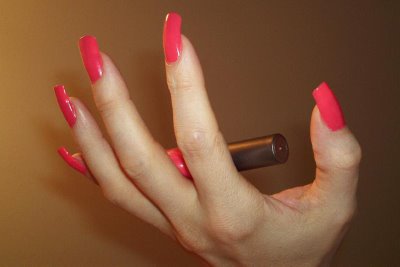
Anyone can have strong, healthy, and well-groomed nails by following just a few simple rules. Your nails, like your hair, are made of the protein keratin, and consist of dead cells. They grow quickly (about .1 millimeter per day) and protect the skin at the ends of your fingertips and toes. Nails can also be an indicator of certain health conditions or vitamin deficiencies.
· White lines or spots can be a sign of a zinc or iron deficiency or protein deficiency. More rarely, these white patches or lines can signal liver, heart or kidney disorders.
· Thin, flat nails may indicate a Vitamin B-12 deficiency.
· Ridged nails may indicate an iron deficiency.
· Brittle, dry nails may indicate a calcium deficiency.
· Frequent hangnails may indicate a Vitamin C deficiency.
· Yellowish or discolored nails may indicate a Vitamin B-12 deficiency, or may indicate diabetes, allergies, liver problems, or poor health.
· Greenish nails may indicate infections in the nail bed.
· Bluish nail beds may indicate breathing problems or severe malnutrition.
Otherwise, healthy and well-manicured nails, short or long, should be smooth, without spots, hollows, or ridges. If they are unpolished they should be pinkish and clean. If they are long the ends, they should be curved and filed smooth.
Nails grow faster in young people. With age, nails may become thicker, harder, and may develop ridges. This is why caring for your nails becomes more important as you grow older.